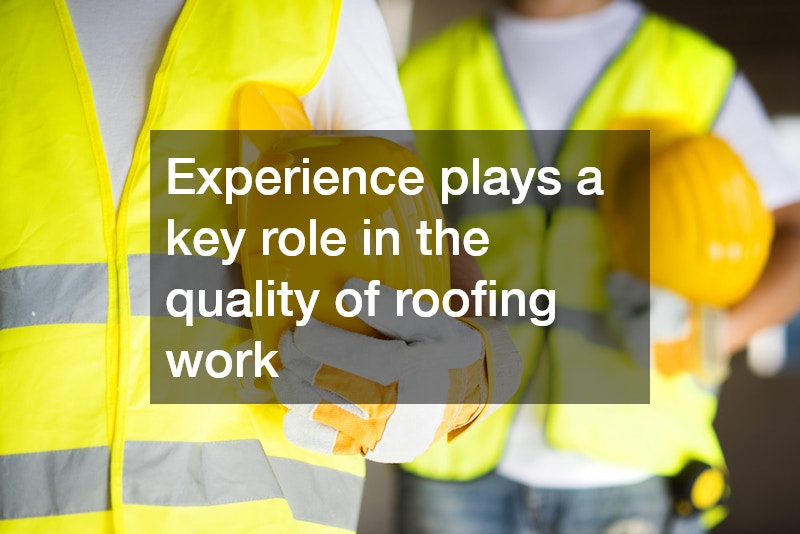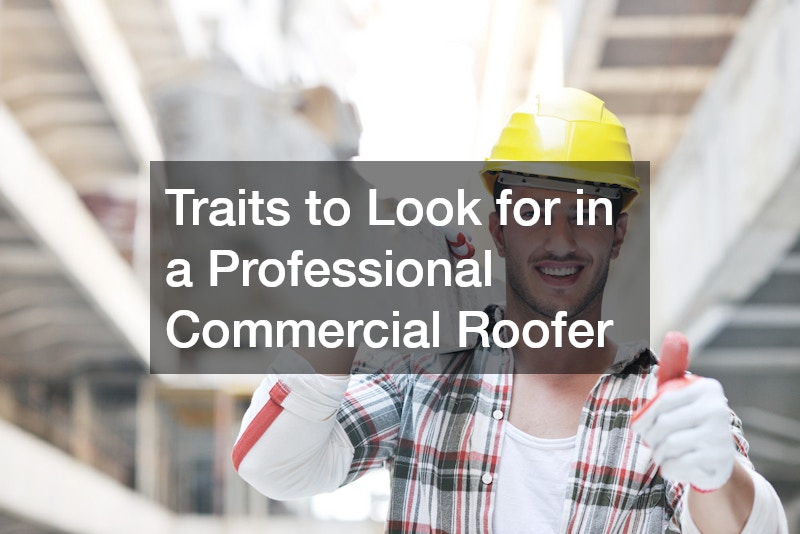Learn about the essential traits you should look for when hiring a professional commercial roofer. Understanding these traits can help ensure that you select a reliable and skilled contractor for your roofing project.
Certifications and Insurance
When evaluating a potential roofer, it’s important to check for any necessary certifications, licenses, and insurance that validate their expertise and compliance with industry standards. A certified commercial roofer has undergone specific training and has the knowledge needed to tackle various roofing tasks.
This professional credential indicates that the roofer understands the building codes and regulations that govern roofing work. Additionally, having proper insurance coverage protects both the contractor and the property owner, mitigating financial risk in case of accidents or damages.
Licensing is a baseline requirement that varies by state and locality, so it’s crucial to verify that your roofer holds the valid licenses needed for commercial roofing projects. A licensed professional not only signifies compliance with regional laws but also represents a commitment to professionalism. When a roofer is licensed, it generally means they have invested in their trade, which is a positive sign when hiring. Moreover, having an insured contractor guarantees that you’re protected from liabilities that may arise if injuries occur during work.
Furthermore, certifications from recognized organizations or industry leaders can enhance a roofer’s credibility. These certifications often require rigorous training and testing, ensuring that the roofer is proficient in various roofing systems and techniques. A roofer with continual education certifications demonstrates a commitment to keeping up with evolving technologies, materials, and safety protocols in the roofing sector. Such qualifications will equip your roofer to address your specific needs effectively.
Experience and Expertise
Experience plays a key role in the quality of roofing work. A seasoned commercial roofer brings valuable insights and practical knowledge gathered through years of hands-on work. This expertise allows them to anticipate potential challenges that less experienced roofers might overlook. As a project manager or business owner, understanding the duration of a contractor’s experience can guide your decision-making process significantly. The more experienced a roofer is, the more likely they are to provide reliable solutions tailored to your unique needs.
Moreover, an experienced roofer will have tackled a variety of projects, developing a versatile skill set in the process. They can efficiently handle unexpected issues and devise effective strategies to resolve them, ensuring your project runs smoothly. This adaptability is essential, particularly in commercial roofing, where different buildings may have unique structural or environmental challenges. As seen in the industry, experienced roofers are also more familiar with the latest tools and technologies, enabling them to complete tasks more efficiently.
The quality of the materials used and the techniques employed often rely heavily on the roofer’s experience. Many roofing failures stem from improper installation techniques or poor material choices, which experienced roofers are less likely to make. As such, by opting for a contractor with a proven track record and several years in the business, you’re making a substantial investment in the long-term performance of your roof. Your roof plays a critical role in the overall health of your commercial property, and experience ensures that the work will stand the test of time.
Warranties and Coverage
A reputable commercial roofer should provide warranties on both materials and workmanship. A robust warranty not only covers the roof against potential defects but also gives you peace of mind concerning the quality of workmanship provided. This section examines the types of warranties to look for and why they matter for your roofing project. Understanding the difference between material warranties and workmanship warranties is critical. Material warranties typically cover the roofing materials, while workmanship warranties cover the installation process.
When assessing warranties, consider the duration and coverage offered. Longer warranties usually indicate greater confidence in the materials and techniques being used, making them a red flag if the warranty period is suspiciously short. It is essential to ask the roofer to clarify the warranty conditions and any possible exclusions. A clear understanding helps you to be prepared should any issues arise down the line. Because the roof is a major investment, having solid warranty options will also safeguard your investment for years to come.
Additionally, some manufacturers offer extended warranties if a certified roofer installs their products. This dual-level warranty coverage can provide an extra layer of assurance for property owners. In essence, it ensures that both the materials utilized and the methods employed are reliable, reducing your worries about costly repairs. Finally, make sure to keep all warranty documentation in a safe place, detailing any agreements made and procedures for claims, should such a situation arise.
Safety and Protocols
Safety is paramount in the roofing industry. A professional commercial roofer must adhere to stringent safety protocols to protect not only themselves but also your property. This is especially important given the high-risk nature of roofing work, which often involves working at elevated heights and with heavy materials. Ensuring the roofer you select follows established safety standards will help prevent accidents and liabilities during the project. It is essential to discuss safety protocols up front to clarify how they mitigate risks on their job sites.
Moreover, roofers should be well-trained in the use of personal protective equipment (PPE) and safety gear. This includes harnesses, hard hats, and non-slip footwear, which are vital for safeguarding their well-being while working. A reputable contractor prioritizes the health and safety of their crew, continually investing in training and compliance with OSHA regulations and industry best practices. Training should be ongoing to adapt to new safety protocols as they enter the industry.
Furthermore, in addition to safety equipment, a structured safety plan should be in place before any roofing work begins. This plan, developed in consultation with safety professionals, outlines potential hazards, site-specific risks, and emergency procedures. A solid safety plan actively involves workers in maintaining safety standards. When you engage a commercial roofer that prioritizes safety, you minimize potential risks and reinforce the significance of professional integrity in the roofing industry. Ultimately, prioritizing safety will lead to a more efficient and productive project.
Choosing the right commercial roofer involves careful consideration of various traits and qualifications. By focusing on the critical aspects outlined in this article, you can ensure that your roofing project is handled by professionals who are competent and trustworthy.



